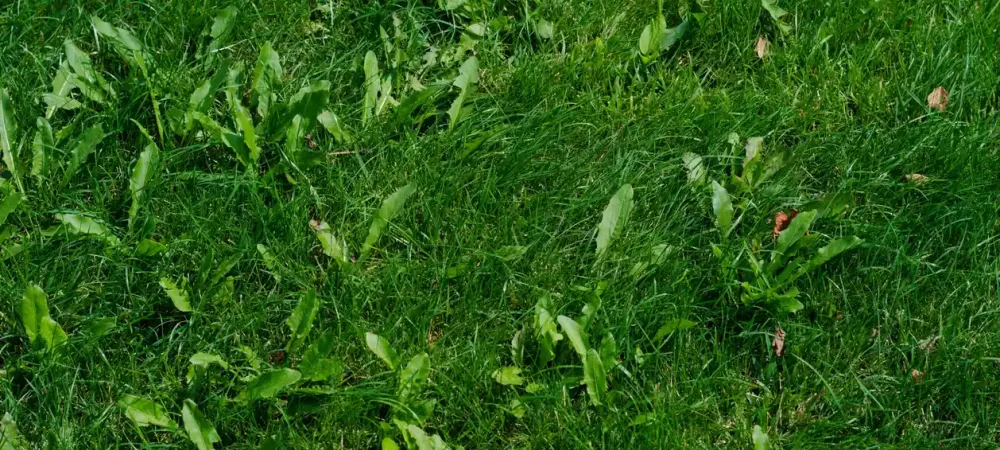Grassy Weeds Found in Georgia

Georgia is known for its lush landscapes and vibrant greenery, but along with the beautiful flowers and well-manicured lawns, there are also some pesky grassy weeds that can cause headaches for homeowners and gardeners. These invasive plants can quickly take over a yard if left unchecked, competing with desired vegetation for nutrients and sunlight. In this article, we will explore some of the most common grassy weeds found in Georgia and offer tips on how to identify them.
What Are Grassy Weeds?
Grassy weeds are unwanted plants that resemble grass in appearance, but they can quickly grow out of control and become a nuisance in lawns and gardens. These weeds often have rapid growth rates, aggressive spreading habits, and deep root systems that make them difficult to remove once established.
Unlike traditional turf grasses that are intentionally planted for their aesthetic appeal and durability, grassy weeds can be invasive species that were introduced accidentally or intentionally and have since become problematic in Georgia's landscapes.
Common Grassy Weeds
Understanding the common grassy weeds in Georgia is the first step toward maintaining a healthy, vibrant, and weed-free environment.
Crabgrass
Crabgrass is one of the most prevalent grassy weeds found in Georgia lawns. This annual weed thrives in warm, sunny conditions and can quickly take over a yard if left untreated. Crabgrass has a distinctive appearance with light green blades that grow horizontally from a central base, forming a crab-like shape hence its name.
One of the key characteristics of crabgrass is its ability to spread rapidly through seeds that can remain dormant in the soil for several years, germinating when conditions are favorable. To prevent crabgrass from taking over your lawn, it is important to maintain a healthy turf with proper watering, mowing, and fertilization practices.
Dallisgrass
Dallisgrass is another common grassy weed found in Georgia. This perennial weed forms clumps of coarse, dark green blades that can quickly invade lawns and flower beds. Dallisgrass is known for its aggressive spreading habit through seed production and underground rhizomes, making it difficult to control once established.
To effectively manage dallisgrass, it is important to manually remove the clumps or use a selective herbicide specifically designed to target this weed. Regular mowing at a higher height can also help prevent dallisgrass from spreading and competing with desired vegetation.
Bermuda Grass
Bermuda grass is a warm-season perennial grass that is often used in lawns and athletic fields for its durability and tolerance to heat and drought. However, it can also be considered a grassy weed when it begins to invade other areas of the landscape where it is not wanted.
Bermuda grass spreads through both seeds and underground rhizomes, making it difficult to control once it takes hold. This aggressive grass can quickly overtake flower beds, gardens, and other areas where it is not desired.
To prevent Bermuda grass from becoming a problem in your yard, it is important to establish physical barriers such as edging or mulch to prevent the spread of rhizomes. Regularly mowing at a higher height can also help weaken Bermuda grass and prevent it from taking over other areas of your lawn.
Goosegrass
Goosegrass is a summer annual grassy weed commonly found in Georgia lawns and landscapes. This weed has flat, broad leaves and forms spreading clumps that can quickly take over areas of turf grass. Goosegrass thrives in compacted soils and areas with poor drainage, making it a common problem in lawns that are not properly maintained.
To control goosegrass, it is important to improve soil drainage and reduce compaction through aeration and proper watering practices. Regular mowing and the use of pre-emergent herbicides can also help prevent goosegrass from establishing itself in your lawn.
Johnson Grass
Johnson grass is a perennial grassy weed that is considered invasive in Georgia. This tall, coarse grass has thick stems and can quickly spread through underground rhizomes and seeds. Johnson grass is known for its rapid growth rate and ability to compete with desirable plants in the landscape.
To effectively control Johnson grass, it may require a combination of physical removal, such as digging up the roots, and the use of a selective herbicide. It is important to act quickly when dealing with Johnson grass, as it can quickly take over an area if left unchecked.
Contact WinLAWN Today
Whether you are dealing with crabgrass, dallisgrass, Bermuda grass, goosegrass, or Johnson grass in your Georgia lawn, it is important to take action to prevent these grassy weeds from taking over your yard. Proper maintenance practices such as regular mowing at a higher height, proper watering, and fertilization can help keep these weeds at bay.
If you are struggling to control grassy weeds in your lawn, consider contacting a professional weed removal service like WinLAWN of Cumming, GA. Our team of experts can provide tailored solutions to effectively manage and prevent the spread of grassy weeds in your yard.
Don't let invasive grassy weeds ruin the appearance of your lawn. Contact WinLAWN today for assistance with weed control and maintaining a healthy turf in your Georgia landscape.